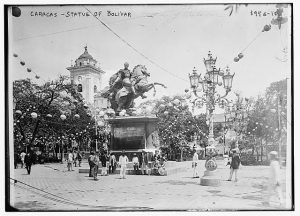Vermont writer Peter Lackowski has visited Venezuela five times since 2005, giving him perspective on the current situation in the country and how it evolved time. His new article, “Eyewitness in Venezuela: a 14-year Perspective,” calls into question the official story of a grave humanitarian crisis, which the United States says is due to Maduro’s corrupt leadership and which provides America with an excuse to attempt regime change in that country.
Lackowski’s article describes conditions as he saw them and what he saw was very different from what is claimed in official US press statements. When he went back most recently, he says he expected to see empty shops and armies of beggars, but instead, life seemed to be going on as usual. He saw people going to work and coming home, buying goods in stores (although not as much as they might without hyperinflation), and basically living their lives.
Lackowski makes it clear that US sanctions have had an effect on the people, and they’ve had to learn ways to work around them. In one ironic instance, sanctions prevent the Venezuelans from buying GMO seed or the pesticides that go with them. Hence, America’s ban on imports has forced them to use organic farming methods!
Read the article for much more detail about life in Venezuela, one of the few socialist countries in our hemisphere. Lackowski actually makes the formation of collectivist communes sound attractive, once you learn that they’re nothing more sinister than self-governing organizations of ordinary people trying to improve life for the locals.
Read it here: Eyewitness in Venezuela: a 14-year Perspective by Peter Lackowski
For further perspective on US/Venezuela relations through the years, here’s an eye-opening snippet from a geography textbook for middle school aged pupils published in 1920:
“Future….Some think that Venezuela is more promising than any other country of equal area in South America. As yet there are too few white people in the country, and the Indians and black people are lazy. This country is within such easy reach by water from the United States that many people in North America will probably take part in the development of its natural resources.” (from New Geography, Book Two – New England Edition by Wallace W. Atwood, published by Ginn and Company)
The assessment of the author of New Geography was not an outlier at the time or since — rather, it has been the traditional view of America towards countries it regards as backwards. Today, of course, we take care to couch our imperialist ambitions in less blatantly racist terms.
In the case of Venezuela, America has done its best through sanctions and other means to create a humanitarian crisis as a justification for our intervention. Unfortunately for the neocolonialists, even in this they have failed, if Lackowski’s account is to be believed.
Photo: Statue of Bolivar, Caracas, Venezuela. The Library of Congress -Public domain






